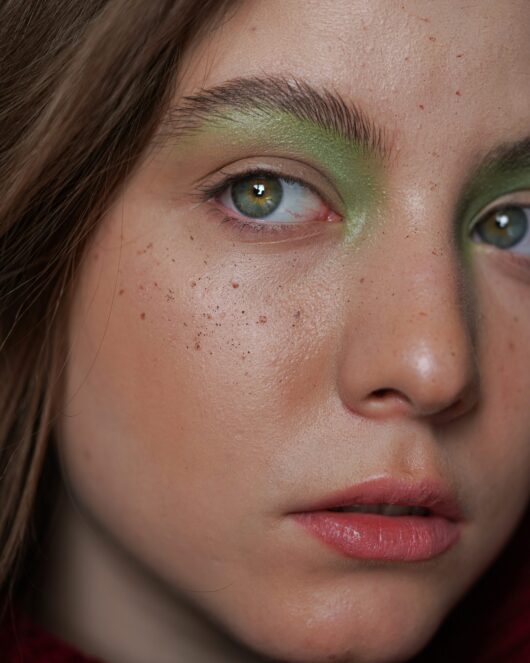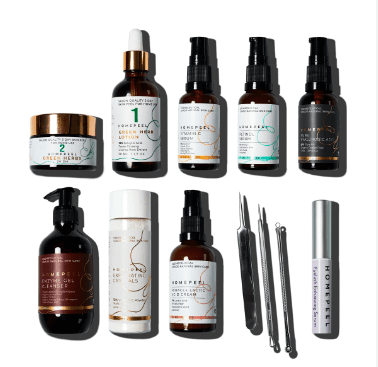Skincare
What Are the Different Types of Pimples: A Comprehensive Guide

What Are the Different Types of Pimples: A Comprehensive Guide
Pimples are a common skin condition that can affect individuals of all ages. They can be frustrating and sometimes even painful. Understanding the different types of pimples can help in determining the most effective treatment approach. In this article, we will explore the various types of pimples and provide insights on how to manage them.
1. Whiteheads
Whiteheads, also known as closed comedones, are small, raised bumps with a white or flesh-colored top. They occur when a hair follicle becomes clogged with oil, dead skin cells, and bacteria. Whiteheads are typically non-inflammatory and can be easily treated with over-the-counter topical creams containing salicylic acid or benzoyl peroxide.
2. Blackheads
Blackheads, or open comedones, are similar to whiteheads but have a dark appearance due to the oxidation of melanin. They are caused by the same factors as whiteheads and are commonly found on the nose, chin, and forehead. Gentle exfoliation and regular cleansing can help prevent blackheads from forming.
3. Papules
Papules are small, red, inflamed bumps that can be tender to the touch. They occur when the walls of the hair follicles break down, leading to inflammation. It is important to avoid picking or squeezing papules, as this can worsen the inflammation and potentially lead to scarring. Topical treatments containing ingredients like tea tree oil or sulfur can help reduce inflammation and promote healing.
4. Pustules
Pustules are similar to papules but contain pus at the top. They appear as red bumps with a white or yellow center and are often referred to as “pimples.” Pustules can be treated with topical antibiotics or benzoyl peroxide to help reduce inflammation and eliminate bacteria.
5. Nodules
Nodules are large, solid, and painful pimples that develop deep within the skin. They are caused by a severe infection in the hair follicles and require professional medical treatment. Dermatologists may prescribe oral medications, such as isotretinoin, to help manage nodules and prevent scarring.
6. Cysts
Cysts are the most severe form of acne and are characterized by large, painful, fluid-filled lesions. They can lead to scarring if not treated properly. Dermatological intervention is often necessary to treat cysts, and procedures like drainage or cortisone injections may be performed to alleviate inflammation and promote healing.
Frequently Asked Questions
1. Can poor hygiene cause pimples?
Poor hygiene alone does not directly cause pimples. However, inadequate cleansing can contribute to the buildup of oil, dead skin cells, and bacteria, which can clog pores and lead to acne breakouts.
2. Are there any natural remedies for pimples?
While natural remedies like tea tree oil and aloe vera may help reduce inflammation and promote healing, it is important to consult a dermatologist for a proper diagnosis and treatment plan.
3. Can diet affect the occurrence of pimples?
Research suggests that certain diets, particularly those high in refined carbohydrates and dairy products, may contribute to acne breakouts. However, individual responses to diet can vary, and it is best to consult a healthcare professional for personalized advice.
4. How long does it take for pimples to heal?
The healing time for pimples can vary depending on the type and severity. Mild pimples may resolve within a few days, while more severe forms may take several weeks or even months to heal completely.
5. Can stress worsen pimples?
Stress can potentially exacerbate acne breakouts by triggering hormonal imbalances and increasing oil production. Implementing stress management techniques, such as exercise and relaxation exercises, may help in managing acne.
6. Are there any preventive measures for pimples?
Regular cleansing, exfoliation, and avoiding excessive touching or picking of the face can help prevent the formation of pimples. Additionally, using non-comedogenic skincare products and maintaining a healthy lifestyle can contribute to clearer skin.
7. When should I see a dermatologist?
If over-the-counter treatments are not effectively managing your acne or if you have severe or persistent breakouts, it is advisable to seek professional medical advice from a dermatologist. They can provide a proper diagnosis and recommend appropriate treatment options.
Conclusion
Understanding the different types of pimples is crucial in developing an effective treatment plan. While over-the-counter products can help manage mild forms of acne, it is important to consult a dermatologist for severe cases to prevent scarring and further complications.
Remember to avoid picking or squeezing pimples, as this can worsen inflammation and increase the risk of scarring. With proper care and treatment, you can effectively manage and reduce the occurrence of pimples.

Skincare
Natural Remedies for Pimples: Effective Solutions for Clear Skin

Natural Remedies for Pimples: Effective Solutions for Clear Skin
Dealing with pimples can be frustrating and can have a negative impact on your self-confidence. While there are various over-the-counter products available, many people prefer natural remedies to treat their pimples. In this article, we will explore some effective natural remedies for pimples that can help you achieve clear and healthy skin.
1. Tea Tree Oil
Tea tree oil is a popular natural remedy for pimples due to its antibacterial properties. It helps reduce inflammation and kill the bacteria that cause acne. To use tea tree oil, dilute it with a carrier oil like coconut oil and apply it to the affected areas using a cotton swab.
2. Honey
Honey is known for its antimicrobial properties, making it an excellent natural remedy for pimples. Apply a small amount of raw honey to the affected areas and leave it on for 10-15 minutes before rinsing off. Honey can help reduce redness and inflammation while promoting healing.
3. Aloe Vera
Aloe vera gel has soothing properties that can help reduce inflammation and redness caused by pimples. Apply a thin layer of aloe vera gel to the affected areas and leave it on for 20-30 minutes before rinsing off. Aloe vera can also help moisturize the skin without clogging pores.
4. Apple Cider Vinegar
Apple cider vinegar contains acetic acid, which has antimicrobial properties that can help fight off acne-causing bacteria. Mix one part apple cider vinegar with three parts water and apply it to the affected areas using a cotton ball. Leave it on for a few minutes before rinsing off.
5. Green Tea
Green tea is rich in antioxidants that can help reduce inflammation and fight bacteria. Brew a cup of green tea and let it cool down. Use a cotton ball to apply the cooled green tea to the affected areas or use it as a face wash. Green tea can also help control oil production.
6. Witch Hazel
Witch hazel is a natural astringent that can help remove excess oil from the skin and reduce inflammation. Apply witch hazel to the affected areas using a cotton ball. It can help tighten the pores and prevent further breakouts.
7. Lemon Juice
Lemon juice contains citric acid, which can help exfoliate the skin and remove dead skin cells. It also has antibacterial properties that can help fight acne-causing bacteria. Apply freshly squeezed lemon juice to the affected areas using a cotton ball and leave it on for 10-15 minutes before rinsing off.
Frequently Asked Questions
1. Are natural remedies as effective as over-the-counter products?
Natural remedies can be effective for some individuals, but it depends on the severity of the acne and individual skin types. It’s best to consult with a dermatologist to determine the most suitable treatment plan for your specific needs.
2. How long does it take to see results with natural remedies?
The time it takes to see results can vary from person to person. Some individuals may see improvement within a few days, while others may take longer. Consistency is key when using natural remedies for pimples.
3. Can I use multiple natural remedies at once?
It’s generally recommended to introduce one natural remedy at a time to see how your skin reacts. Using multiple remedies simultaneously may cause irritation or other adverse reactions.
4. Can natural remedies help with acne scars?
While natural remedies may help fade acne scars over time, more severe scarring may require professional treatment options. Consult with a dermatologist for personalized advice on treating acne scars.
5. Are there any side effects of using natural remedies?
Most natural remedies are safe to use, but some individuals may experience irritation or allergic reactions. It’s important to do a patch test before applying any new remedy to your face and discontinue use if you experience any adverse effects.
6. Can diet affect acne?
While diet alone may not be the sole cause of acne, certain foods can trigger breakouts in some individuals. It’s recommended to maintain a balanced diet and avoid excessive consumption of sugary or greasy foods.
7. When should I see a dermatologist?
If your acne is severe, persistent, or causing emotional distress, it’s advisable to consult with a dermatologist. They can provide professional guidance and recommend appropriate treatments for your specific condition.
Conclusion
Natural remedies for pimples can be effective in treating acne and promoting clear skin. However, it’s important to remember that everyone’s skin is different, and what works for one person may not work for another.
It’s always a good idea to consult with a dermatologist before trying any new remedies, especially if you have sensitive skin or existing skin conditions. With patience and consistency, you can find the natural remedy that works best for you and achieve the clear, healthy skin you desire.
-

 Trending Stories1 year ago
Trending Stories1 year agoCDC: 1 in 4 Americans Still COVID-Free by End of 2022
-

 Health8 months ago
Health8 months agoHow Do Pawpaw Seeds Support Cardiovascular Health?
-

 Health5 years ago
Health5 years agoMeghan Trainor Shares Motivational New Song ‘Blink’
-

 Health2 years ago
Health2 years agoHow Long Does Monkey Pox Last Before It Surfaces in the Body?
-

 Health3 years ago
Health3 years agoWhat Causes Swollen Body? Understanding Edema and its Triggers
-

 Health3 years ago
Health3 years agoNutrition and the Importance of a Fitness Program – 3 Things to Know
-

 Health3 years ago
Health3 years ago5 Weird Reasons Why Pimples Disappear After Marriage
-

 Health3 years ago
Health3 years agoHealth Benefits Of Pawpaw Seed? 7 Things To Know






